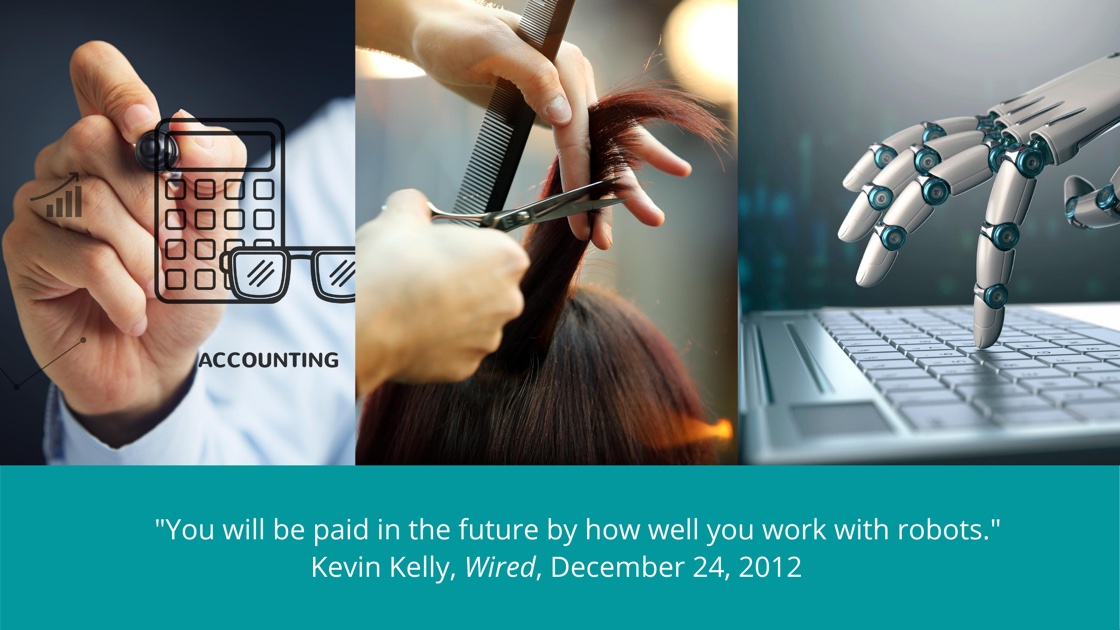The dilemma around education and robotics: The case of accountants and hairdressers in our digital future

A recent TV report showed a student in Scotland reviewing her 2020 school-leaving examination results. The report was part of an analysis of the standardisation process used by the Scottish Qualifications Authority in this extraordinary year, when formal examinations were not written. Some problems emerged over perceived unfairness in lowering of teacher-assessed grades, but my interest here is more in the longer-term viability of the curriculum this student followed and how well it prepares her, and succeeding cohorts of students, for life and work in the decades ahead.
This student’s results covered the usual range of subjects and, no doubt, will allow her to pursue tertiary level studies and, in time, move into the workforce later in this decade. But for how much longer will the education she received, and the system which delivered it, replicated in one form or another across the globe, remain fit for purpose?
How long will her experience remain relevant, as the world of work, and the world in general, become increasingly digitised, and a paradigm shift imperative emerges in relation to what knowledge, skills, attitudes and capabilities will be required of those entering the world of work by mid-century? And how will these new workers interact with the increasingly digitised world, where many of the current (un)reasonable certainties around future employment have dissipated?
By mid-century, many of the routine mechanical tasks which today are performed by humans, will be performed by robots. Brynjolfsson and McAfee in ‘The Second Machine Age’ (2014), written in an American context but widely applicable, point to today’s accountants, for example, whose regular and routine tasks will be automated by then, via a technology which can do the job much more quickly, efficiently, and cheaply. What will the accountant do then, especially if s/he is 39, 47 or 53? How will s/he make a living? How will they then view their value as a human, and a member of society?
By contrast, they note, for example, that hairdressers are in a much better place! The non-mechanical complexity of their job, like that of chefs and gardeners, for example, will remain outside the competence of automation and, therefore, maintain employment.
I am not advocating that students are uniformly directed towards careers in salons, kitchens, or gardens, but simply emphasising that the resumé necessary to remain relevant in the employment stakes mid-century will demand a considerable shift from today’s. The challenge facing schools now is to reinvent themselves as multi-layered wellsprings, from where students can emerge who are curious, adept communicators, collaborators, with broad horizons, with ideas about generating ideas, and resolute, to name a few distinctives. The foundational 3Rs remain important, but they are now only a part of the picture, not the whole puzzle; understanding and application are now more important than memorisation and regurgitation, and the manner of delivery of the whole curriculum will need to adapt to these new realities.
Successful schools of the future will need to possess forward-looking, far-sighted imagination in trying to prepare their students for a hugely different future. Academic and technological competencies will necessarily sit alongside the development of other competencies such as I mentioned above. And crucially, they all must also address the fundamental issue of how students view themselves as persons, and members of society, apart from whatever tasks/jobs – for it is likely to be a number – they might perform in life, whether in a human, digitised or blended environment.
The current pandemic pause has given many educators and schools an opportunity to reflect and reassess. It is not too late then, perhaps, to recognise the quantum leap of difference students of this and succeeding decades will experience in their personal and (un)employment lives, and urgently consider how to prepare for it … understanding that having a coffee with friends, and sharing a work space with a robot, may, within a very few decades, be the norm.
